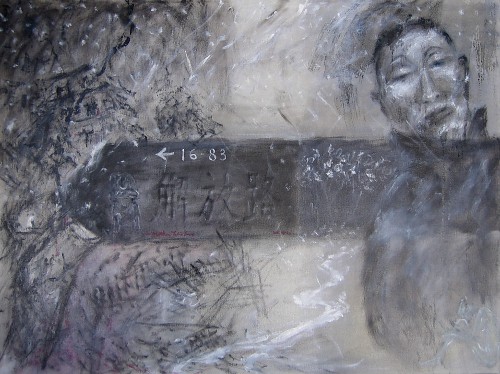I have always approached art products in all forms by Chinese with certain circumspection and too ready to be critical. I don't believe this was caused by jealousy, at least not by it alone. Rather, I have very ambivalent feelings towards my own Chinese, and more broadly Asian heritage.
I am not trying to deny my heritage but simply a little leery of it being exoticized.
When I started to attend San Francisco Opera, I skipped the first offerings of "Madama Butterfly" and "Turandot". Since then, I have attended both and was glad not to witness a feared spectacle of all Asians gathering together celebrating our heritage, which would have been too much to bear. However, I didn't hesitate to attend the performance of a seminal Chinese play by the visiting Beijing troupe at Cal Performances. Perhaps, when the topics touched on Asian heritage, I became more demanding and the artistic hurdle was raised consequently. I couldn't stand Metropolitan Opera's offering of "The First Emperor" became it was a anthem to tyranny and I couldn't stand San Francisco Opera's "The Bonesetter's Daughter" because the music segment I was able to sample before the premiere was too vulgar.
The latter two operas would not have attracted much attention if the were not set in China and even composed by a Chinese. This attitude of mine carried me into fine art fields as well. I fear that some Chinese artists are using the iconography of Cultural Revolution as exotic shop sign and was too obsessed to its trapping for their own artistic growth.
Such attitude of mine sometimes shut me off from my heritage. I just saw a brilliant movie "Never Let Me Go" which was based on Kazuo Ishiguro's novel of same name. I didn't realized that it was based on his novel and failed to realize any Japanese sentiment in it, till a friend of mine pointed it out that [spoiler alert] none of the characters in the movie tried to escape their horrible fate. This was what made this movie most poignant and indeed it connected to Japanese culture. In British literary, people would not suffer their fates like sacrificial lamps. Even Jane Austen's heroines rebelled against their trappings.
How blinded I have been. Or how biased I became due to my rebellion against the culture I grew up in!
I'm always impatient and often hostile to stories about constant women waited in misery for their men to come back to them, with or without ground, with or without hope, such as Madama Butterfly and Penelope. A writer friend of my claimed that Odessy story was his favorite of all time and however I respect his intelligence, I just cannot see it in the same light. To me, Clytemnestra and Medea are the heroines deserve compassion.

Liberation Road © Matthew Felix Sun





No comments:
Post a Comment